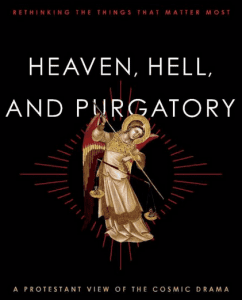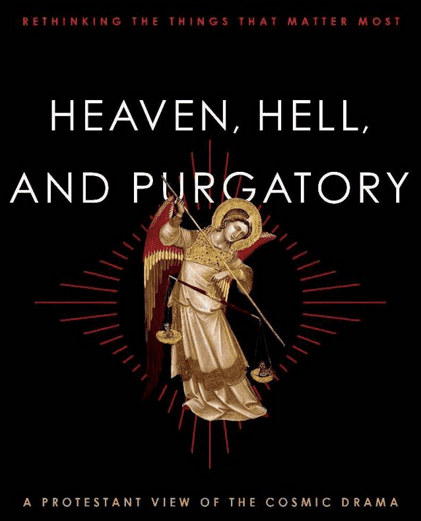 Protestants argue that humans are instantaneously transformed at death/at the judgment into a condition — let’s call it holiness and love — that is fit for dwelling with God in God’s perfect kingdom. It is unclear for most Protestants how this happens, but it does happen. Put differently, Protestants react against any notion that there is a period during which this transformation occurs. Catholics, on the other hand, believe in purgatory and see it as the time during which God purges the human from his or her sins and beliefs and idols, etc.
Protestants argue that humans are instantaneously transformed at death/at the judgment into a condition — let’s call it holiness and love — that is fit for dwelling with God in God’s perfect kingdom. It is unclear for most Protestants how this happens, but it does happen. Put differently, Protestants react against any notion that there is a period during which this transformation occurs. Catholics, on the other hand, believe in purgatory and see it as the time during which God purges the human from his or her sins and beliefs and idols, etc.
The issue here then is the jump from our sinful condition to a perfect condition. How does that happen? Do all experience the same perfect condition?
This is the general view, but there are Protestants like Jerry Walls (Purgatory: The Logic of Total Transformation), who believe in purgatory.
What is your response to Walls’ defense of purgatory in this post? Do you think virtue ethics entails purgatory?
Before I get to his view, let me pound a few stakes into the ground. First, I believe those who believe in virtue ethics — the view that habits are performed that morally transform a person’s character — should be inclined to believe in purgatory. Why do I say this? Since heaven is about character, and since moral development is about habits-disciplines-character, then it is (at least) logical if not necessary for that character to be fully formed to be fit for heaven/kingdom. If now, why not in the postmortem condition?
Second, Calvinists cannot believe in purgatory though I think there’s a bit of a loop in their theology on this one. Calvinism believes justification and sanctification is entirely a work of grace. (Though some Calvinists to me seem to make sanctification a matter of human discipline, and this is the loop — the more they do, the more purgatory would be logically compatible.) If they see both justification and sanctification to be a work of God’s grace, then glorification/purification would be as well.
Third, Arminians — if they are true to Wesley — do not believe in purgatory, though their emphasis on free will/choice or cooperation in sanctification might incline them toward purgatory, and Walls would be one example.
But Walls’ theology seems to be shaped as much by yet another issue: personal identity. How does “David” get from a sinful state to a radically changed holy/love state as a sudden act and still sustain identity?
Walls has an extensive discussion of personal identity and how to sustain one’s personal identity between death and resurrection. Tom Wright, for instance, denies purgatory, believes in a conscious personal existence, and resurrection. Dualists — the variety here is large — believe in a soul that is conscious, capable of choice, etc. Materialists can believe in conscious identity between death and resurrection, that “fission” theory still not the same as resurrection, and that view is compatible with purgatory, too.
But for Walls the issue comes down to this: moral transformation, the kind required for a person to become fit for God’s presence, requires these elements:
1. Character development, which takes time and involves a process. [Hence, purgatory.]
2. Free will, or cooperation, so that the person’s transformation is genuinely engaged. [Hence, time and purgatory.]
3. Instantaneous, colossal transformation — think of the deathbed convert — would create a person and identity so at odds with a person’s previous identity and character that the person would not recognize herself/himself. [So, purgatory is needed in order to maintain one’s personal identity and character transformation.]










